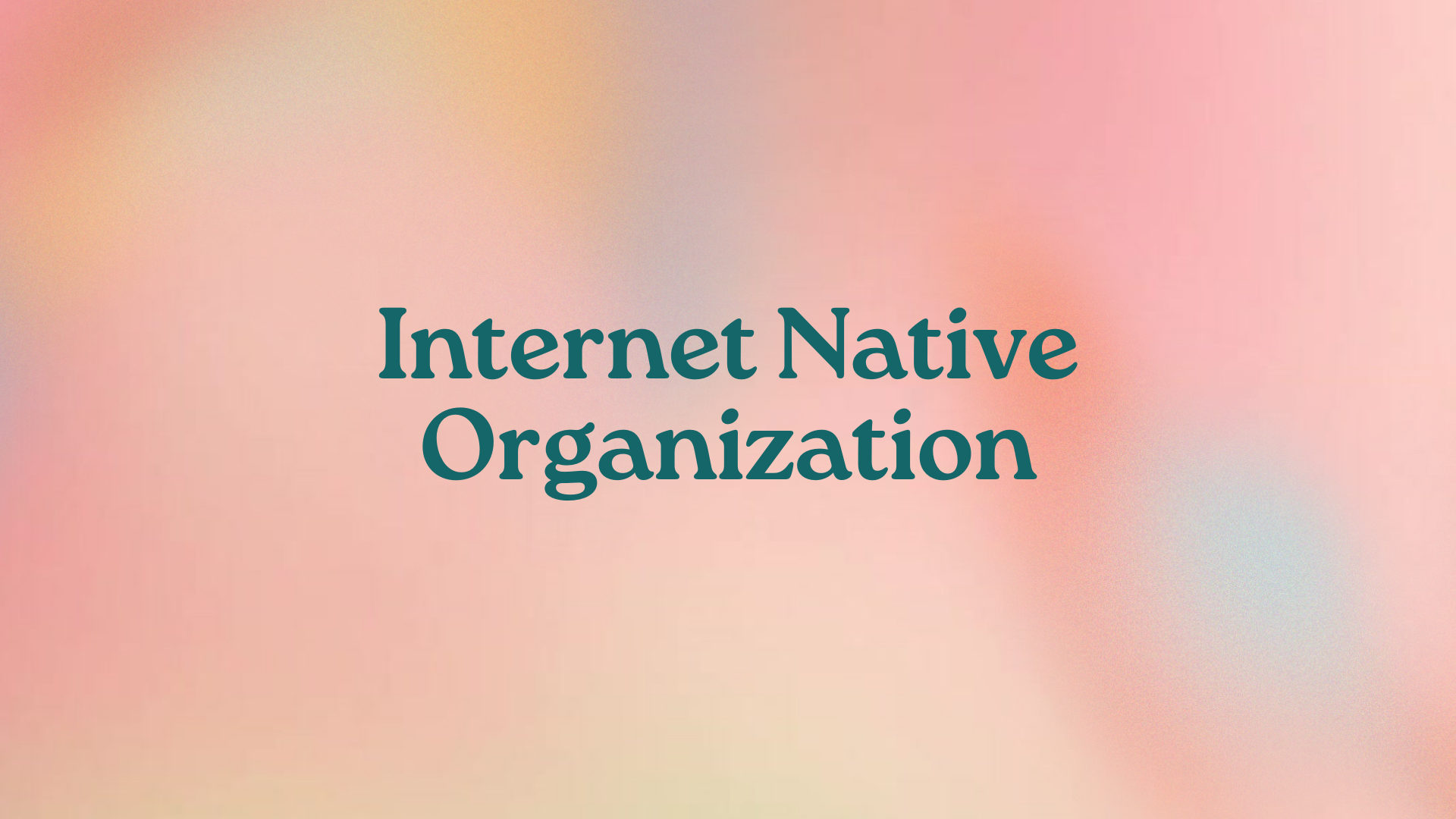Estonia's INO Initiative: A New Chapter in the DAO Evolution

The inception of Decentralized Autonomous Organizations (DAOs) marked a pivotal moment in the digital era, introducing a model where organizational decisions were initially envisioned to be governed by algorithms. This concept promised a future where operations were not just decentralized but also autonomous, relying on technology for governance rather than traditional hierarchical structures.
However, the journey of DAOs has been one of remarkable evolution. Far from being confined to purely algorithmic governance, DAOs have ventured into diverse domains: from curating digital art collections and supporting national defense funds to pioneering efforts in purchasing historical documents and revolutionizing scientific research. This wide array of applications showcases the adaptability and innovative potential of DAOs, demonstrating that they are much more than just algorithm-driven entities.
Given this expansive utility, the term DAOs might not fully encapsulate the breadth of their impact and potential. "Internet Native Organizations" (INOs) emerges as a more fitting descriptor, capturing the essence of entities that are not only autonomous and democratized but also intrinsically linked to the internet's vast expanse. INOs embody a future where organizational structures are fluid, collaborative, and governed by principles of transparency and global participation, while still leveraging the foundational algorithmic governance that defines their operations.
INO's equitable, code-driven governance model champions distributed control, further rebranding DAOs for broader acceptance. Anchored in its distinctive legal architecture, INO continually evolves its digital core through regular compliance-focused updates. This structure aligns seamlessly with the e-governance and legal ecosystems of progressive European nations, facilitating the creation of a regulatory framework where INOs can flourish.
Our mission at INO NGO has always been clear: shaping these internet-native entities. We've marked significant milestones, from becoming Estonia's first legally registered DAO in August 2022 to hosting the groundbreaking DAO Day Estonia in March 2023. Our recent induction into the European Blockchain Regulatory Sandbox further underscores our dedication to a more internet-native future.
The momentum is undeniable.
Based on data from DeepDAO, as of September 15, 2023, there are currently 19,814 governance structures – many refer to these as DAOs. Collectively, they boast 7.3 million governance token holders, with 2.7 million actively participating as voters and proposal makers. With a combined treasury surpassing USD $17.7 billion, it's clear that DAOs are not only a fleeting trend but a transformative force.
Why the Shift from DAO to INO?
- Broadened Scope: DAOs, by definition, emphasize decentralization and autonomy. INOs, on the other hand, champion a more expansive vision, focusing on global, digital-first entities that are trustworthy and ready for mainstream adoption. While they operate with code-driven efficiency, they're anchored by a legal foundation, ensuring that their digital actions have a parallel legal presence, streamlining compliance in the process.
- Flexibility & Innovation: The term "INO" offers greater adaptability and potential for innovation compared to "DAO". It goes beyond just decentralization, emphasizing a fusion of code-driven processes, community-centric involvement, and equitable governance, all designed for the digital age of the Internet.
- Clearer Communication: For the uninitiated, "DAO" can be a complex term. "INO" offers a more intuitive understanding, underscoring the essence of organizations that operate natively on the internet.
- Building on DAOs: We're not sidelining DAOs. Instead, we're evolving them. INOs can be perceived as an advanced iteration of DAOs, focusing on organizations that are digital-first, globally accessible, and designed to be legally compliant. This commitment to legal adherence ensures that INOs not only innovate but also operate within the bounds of established regulations.
Navigating the Legal Terrain: Questions for Commercial Registers Across Jurisdictions
Recognizing that DAOs have paved the way and are more familiar with legal frameworks, our inquiries are framed around DAOs. This is a foundational step to ensure that as INOs gain traction, they have a solid legal base to operate from.
Here are some pressing questions that need addressing as we navigate this new terrain:
- Legal Entity Status: Could a DAO qualify as a legal entity in your jurisdiction? What kind of legal entity or entities? Profit or not for profit? Which basic conditions need to be met? If a DAO wouldn't qualify as a legal entity, could it be seen as a partnership or another legal format in your jurisdiction?
- Registration Requirements: Should a DAO be registered in your jurisdiction's commercial register? Would it need a physical address for this?
- Roles and Responsibilities: What are the formal roles, specific responsibilities, and liabilities for stakeholders in a registered DAO? Which of these stakeholders should be listed in the commercial register?
- UBO Registration: Who should be registered as UBOs (Ultimate Beneficial Owners) of the DAO in your jurisdiction's UBO Register?
- Blockchain Voting System: How would a blockchain-based proposing and voting system in a DAO, or the use of smart contracts, be perceived in your jurisdiction? What measures should be in place to ensure this process leads to valid decisions with both internal and external legal effects?
- Decision-making Process: Could decisions be made by a type of general assembly (using electronic voting and blockchain-based smart contracts) without needing a separate, autonomous board?
- International DAO Registration: If a DAO is registered in another country, what conditions should be met for the DAO to also be registered in other jurisdictions?
- Communication Stakeholders: Who would be the point of contact in a DAO for communication with (i) other regulators, such as the national financial markets regulator, and (ii) third parties?
- Legal Proceedings: Could a DAO face legal action in your jurisdiction's courts? Could it be prosecuted?
- Tax Implications: How does your jurisdiction's tax authority view DAOs?
The Societal Impact of INOs
The INO initiative is more than just a technological advancement; it's an embodiment of Estonia's visionary digital society. By championing INOs, Estonia continues to set the pace for digital innovation, ushering in societal transformations that are both profound and wide-reaching.
- Democratizing Decision-Making: At its core, the INO model fosters a more inclusive and democratic approach to decision-making. By allowing every member to have a voice, it ensures that decisions reflect the collective will, rather than being dominated by a select few. This democratization can lead to more equitable and just outcomes in various sectors, from business to governance.
- Boosting Economic Inclusion: INO structures can provide opportunities for individuals worldwide to participate in economic activities, regardless of their geographical location or socio-economic status. This can lead to a more inclusive global economy where opportunities aren't limited by borders.
- Enhancing Transparency and Trust: The transparent nature of INOs, where every transaction and decision is recorded on a blockchain, can foster greater trust among participants. This transparency can reduce corruption, enhance accountability, and promote ethical practices.
- Fostering Innovation: By reducing bureaucratic hurdles and promoting collaborative decision-making, INOs can become hotbeds for innovation. Diverse groups can come together to brainstorm, fund, and implement groundbreaking ideas, driving societal progress.
- Harnessing Collective Intelligence: The INO model, deeply rooted in the principles of decentralization, brings to the forefront the immense potential of collective intelligence. By tapping into the diverse insights and expertise of its community, INOs are pioneering a new era of holistic and informed decision-making.
Core Values of INO:
- Distributed Governance: Emphasizing the equitable participation and ensuring that decision-making is a collective effort, leveraging the wisdom and insights of the entire community.
- Digital Integrity: Upholding the highest standards of transparency, security, and compliance in all digital operations, ensuring that the organization remains trustworthy and resilient in the face of rapid technological advancements.
- Global Collaboration: Bridging global talents and perspectives to co-create, innovate, and drive the organization's mission, unhindered by geographical or cultural barriers.
DAOs have set the stage, but INOs are the future, representing the next step in the evolution of digital-first, globally accessible organizations. As we champion the INO cause, we acknowledge the foundational role of DAOs and aim to ensure that the transition is smooth, legally sound, and beneficial for all stakeholders.

